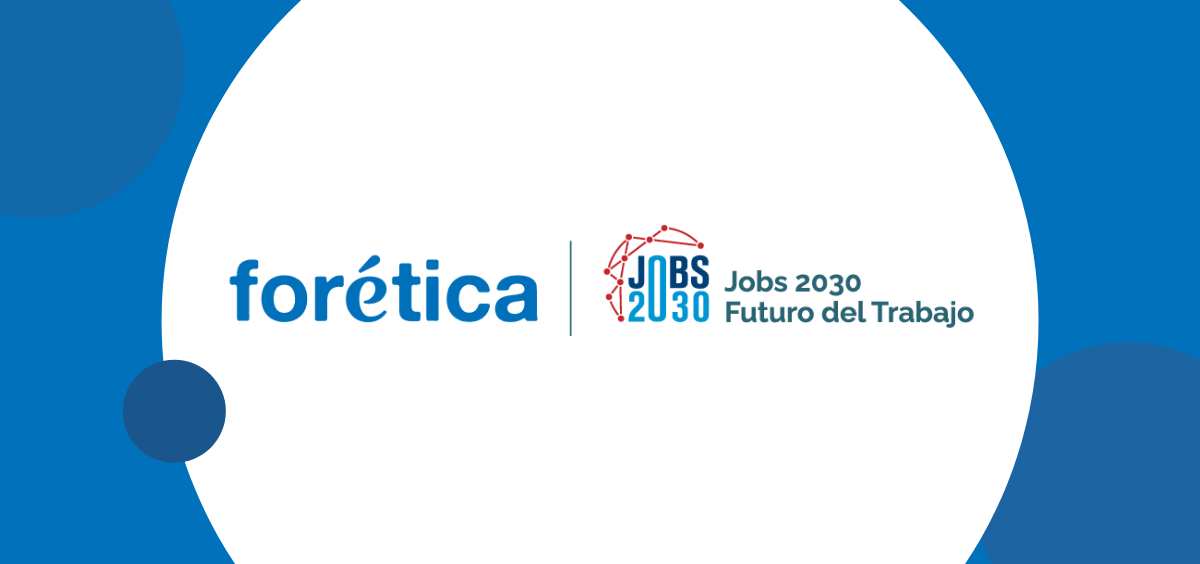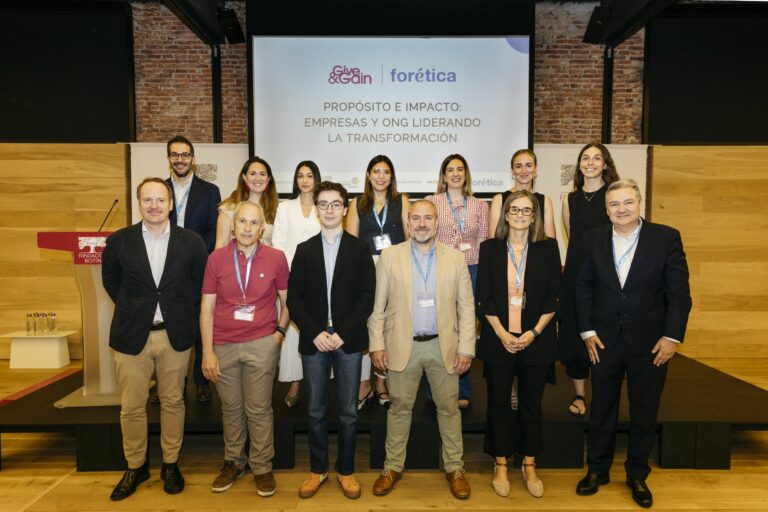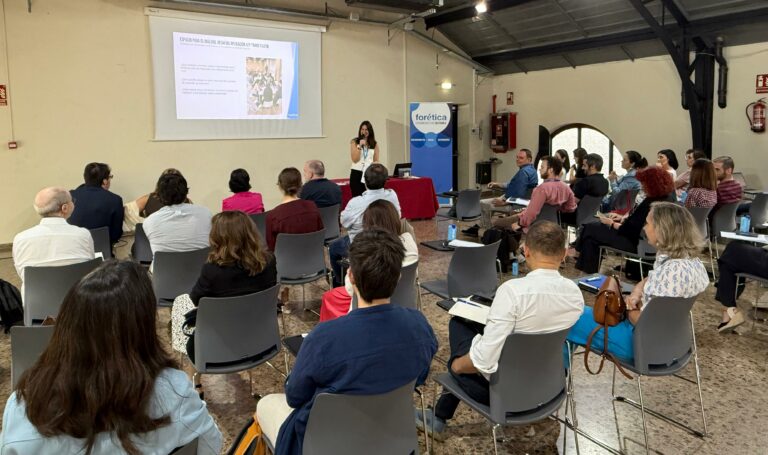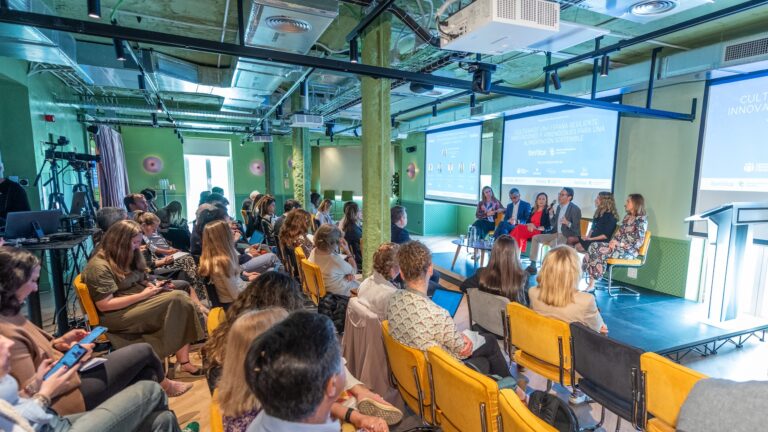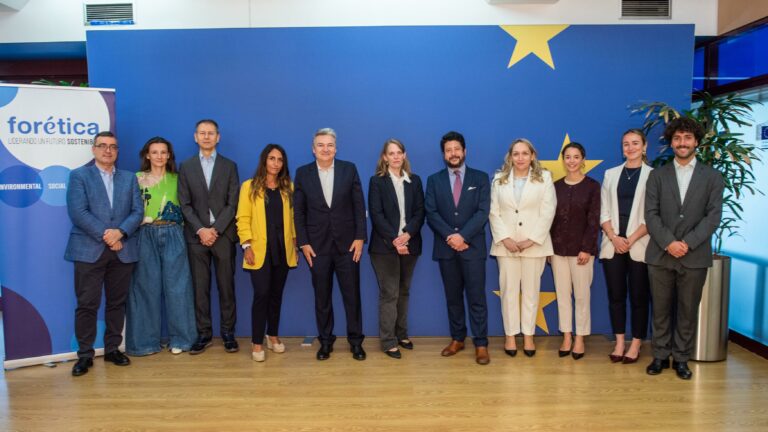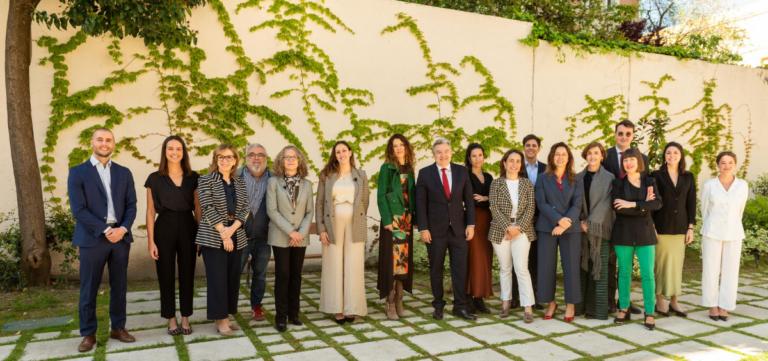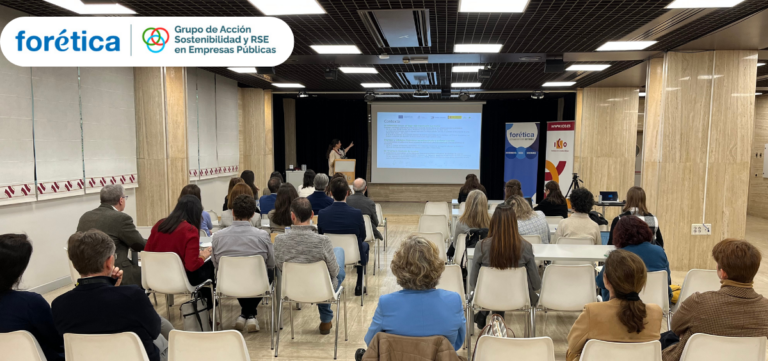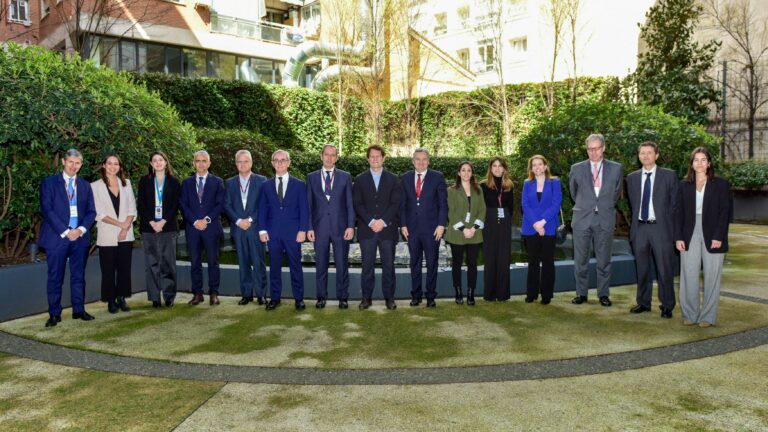- El estudio, presentado en el marco del proyecto ‘JOBS 2030 – Futuro del Trabajo’, aporta datos concretos que muestran la importancia de la transición ecológica y su impacto en los puestos de trabajo, así como cifras relevantes sobre los sectores verdes tradicionales y los estratégicos para acelerar esta transición en la economía española
- El Ministerio de Trabajo y Economía Social apoya institucionalmente el proyecto ‘JOBS 2030 – Futuro del Trabajo’, encabezado por ManpowerGroup, con la colaboración de Fundación ONCE y PRISA, y en alianza con WBCSD y CSR Europe
- Los gobiernos autonómicos de Aragón, Canarias, Castilla y León, Extremadura, Galicia, La Rioja, Comunidad de Madrid, Región de Murcia y Navarra, junto al Cabildo de Tenerife, avalan institucionalmente este proyecto para impulsar un futuro del trabajo sostenible e integrador
Forética, organización empresarial referente en materia de sostenibilidad en España, presenta el Observatorio español de empleo verde y transición justa, elaborado en el marco del proyecto ‘JOBS 2030 – Futuro del Trabajo’ -encabezado por ManpowerGroup, con la colaboración de Fundación ONCE y PRISA-. El informe aporta datos concretos que muestran la importancia de la transición ecológica y su impacto en los puestos de trabajo. Además, incluye cifras relevantes sobre los sectores verdes tradicionales y los estratégicos para acelerar esta transición en la economía española.
Según Eurostat, el porcentaje de desempleo juvenil en España duplica la tasa europea y el dato para los grupos de mayor edad sobrepasa también la media de Europa. Además, se aprecia una fuerte correlación entre el nivel de estudios y el porcentaje de desempleo. Ante esta situación crítica que atraviesa el mercado laboral, la transición verde va a tensionar la vulnerabilidad en el ámbito del trabajo, especialmente para aquellos colectivos con mayores dificultades de acceso al empleo. Junto al reto del desempleo juvenil, elementos como la brecha digital o de discapacidad están centrando los esfuerzos en promover una transición justa centrada en las personas, demandando un mayor compromiso y acción por parte de empresas y administraciones públicas.
Germán Granda, Director General de Forética, afirma: “A través del proyecto ‘JOBS 2030 – Futuro del Trabajo’, desde Forética impulsamos los compromisos de las empresas con una transición justa. Es necesaria una respuesta empresarial adecuada, integrando aspectos ambientales, sociales y de gobernanza (ESG) en las estrategias corporativas, generando mayores niveles de empleabilidad de calidad y más oportunidades de desarrollo para los más vulnerables”.
Según datos recogidos en el informe y de acuerdo con el Centro Europeo para el Desarrollo de la Formación Profesional (Cedefop), 2,7 millones de personas en España están, ahora mismo, empleados en sectores verdes o estratégicos para la transición verde, lo que supone un 14% del total del empleo en España y casi un 26% de la actividad económica.
Además, según esta organización, se estima que el empleo verde total en España crezca a un ritmo algo superior al 1% anual hasta 2030, mientras que en la media de países de la Unión Europea la tasa de crecimiento para estos mismos sectores se estima en un 0,6% anual.
Como destaca el estudio, el empleo verde tiene características diferenciales en España. Todos los sectores que van a impulsar la transición verde en España han aumentado la demanda de trabajadores en el último año. Además, la diferencia entre el valor aportado y el empleo generado sugiere que son actividades de alto valor añadido. Sectores como el energético, la construcción o el turismo se convierten, desde esta perspectiva, en claves para la transición verde en España.
Con el desarrollo de este Observatorio español de empleo verde y transición justa, Forética tiene el objetivo de proponer vías de avance y una hoja de ruta con los principales elementos de acción, así como visibilizar buenas prácticas de organizaciones líderes. En este sentido, las empresas pueden participar en esta iniciativa -plazo hasta el 21 de noviembre- compartiendo aquí los proyectos que demuestren su compromiso y acción en materia de empleo verde y transición justa. Los proyectos seleccionados serán reconocidos en el evento de cierre del proyecto ‘JOBS 2030 – Futuro del Trabajo’ el próximo 29 de noviembre.
La respuesta empresarial ante el reto del empleo verde
Ricardo Trujillo, Manager del proyecto ‘JOBS 2030 – Futuro del Trabajo’ de Forética, destaca: “Desde Forética hacemos un llamamiento a las empresas para que presenten soluciones que están desarrollando en el marco del proyecto ‘JOBS 2030’ con el objetivo de poner en valor la importancia de su contribución en materia de empleo verde y transición justa. Es necesario invertir en el desarrollo de capacidades y talento verde, mediante la colaboración de todos los actores involucrados, para que la fuerza laboral sea el principal activo a la hora de alcanzar los objetivos climáticos y ambientales establecidos por España y Europa, y en ningún caso se convierta en un obstáculo”, destaca Ricardo Trujillo, Manager del proyecto ‘JOBS 2030 – Futuro del Trabajo’.
El objetivo de la segunda edición del proyecto ‘JOBS 2030 – Futuro del Trabajo’ -encabezado por ManpowerGroup, con la colaboración de Fundación ONCE y PRISA- es crear un espacio de diálogo, conocimiento y tendencias empresariales sobre las implicaciones, retos y oportunidades que la transición verde va a tener en el futuro del trabajo, y qué mecanismos es necesario acelerar para promover una transición justa.
El Ministerio de Trabajo y Economía Social apoya institucionalmente el proyecto, en alianza con WBCSD y CSR Europe. Los gobiernos autonómicos de Aragón, Canarias, Castilla y León, Extremadura, Galicia, La Rioja, Comunidad de Madrid, Región de Murcia y Navarra, junto al Cabildo de Tenerife son también partners institucionales de la iniciativa.
Como organizaciones colaboradoras, el proyecto ‘JOBS 2030 – Futuro del Trabajo’ cuenta con la Cámara de Cantabria, la Confederación de Empresarios de Andalucía (CEA), la Confederación Empresarial de Madrid (CEIM), Club Asturiano de Calidad, Club de Empresas Responsables y Sostenibles de la Comunidad Valenciana (CERS), Eticentre, Respon.cat y Visión Responsable, con el objetivo de maximizar el impacto de la iniciativa a nivel regional y local.
La segunda edición del proyecto se articula en tres ejes: ambición, buscando fomentar más y mejores compromisos de las organizaciones con el empleo verde y la transición justa; acción, visibilizando y acercando estrategias y proyectos líderes en la materia; y alianzas, abriendo un espacio de diálogo entre empresas, instituciones públicas y tercer sector para buscar puntos de acción comunes.
En el marco de la primera edición del proyecto, Forética seleccionó un total de 40 iniciativas empresariales que dan respuesta a los retos que plantea el futuro del trabajo, en tres dimensiones estratégicas: Transformación tecnológica centrada en las personas; promoción y desarrollo de talento, habilidades y conocimientos; y diversidad e inclusión en el lugar de trabajo.
Puedes descargar aquí el informe ‘Empleo verde y transición justa en el futuro del trabajo’
Más información sobre ‘JOBS 2030 – Futuro del Trabajo’:
https://foretica.org//proyectos-y-soluciones/jobs-2030-futuro-del-trabajo/

